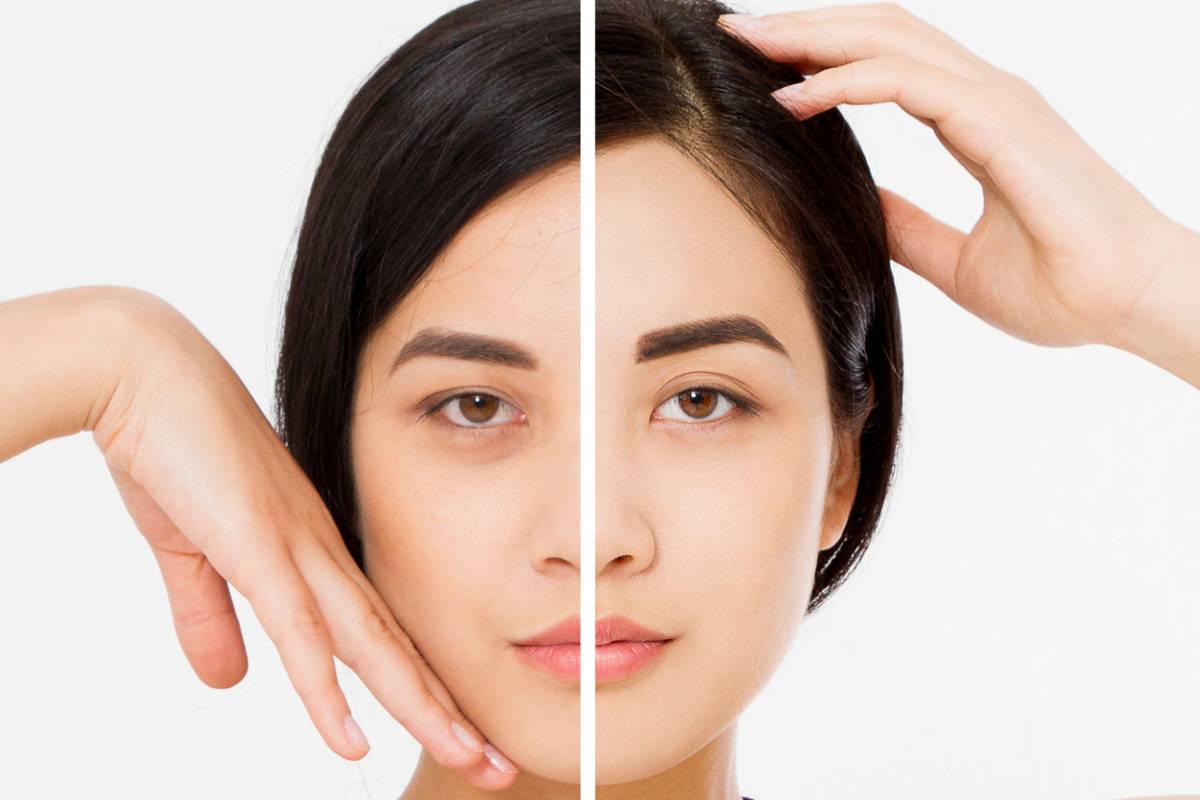Dark circles under the eyes are a common cosmetic concern that can affect people of all ages. They often lead to a tired or aged appearance, which prompts those afflicted to seek dark circle removal solutions. Understanding why we develop dark circles can help you find the most suitable treatment and prevention strategies to maintain a refreshed, youthful look.
Why Do We Develop Dark Circles?
There is a multitude of reasons why we develop dark circles. Some of the most common are outlined below:
Genetics
Your family history plays a significant role in whether you develop dark circles. If thin skin or pigmentation issues run in your family, you may be more prone to this condition. Thin skin makes blood vessels beneath the eyes more visible, thereby contributing to a darker under-eye appearance. Additionally, some people inherit deeper eye sockets, which cast natural shadows that mimic dark circles. Even with proper sleep and hydration, these structural factors can persist without targeted treatment.
Aging
As we age, our body’s collagen production decreases, and the skin becomes thinner and less elastic. This process exposes the blood vessels under the eyes, making dark circles more prominent. Additionally, fat loss and depletion under the eyes create a hollow effect, casting shadows that enhance discoloration. The combination of these age-related changes can make dark circles appear more pronounced over time.
Sleep Deprivation
A lack of adequate sleep can dilate blood vessels under the eyes, increasing blood flow and fluid retention. These effects, in turn, cause puffiness, which creates shadows that resemble dark circles. Chronic sleep deprivation often worsens this appearance. For this reason, rest is essential for preventing dark circles. Even one night of poor sleep can have noticeable effects.
Dehydration
When the body is dehydrated, the under-eye skin becomes dull and saggy. This condition can exaggerate the appearance of dark circles, as the thinner skin shows discoloration more easily. Drinking plenty of water helps keep the skin plump and radiant, minimizing dark circles related to dehydration.
Lifestyle Factors
Smoking, excessive alcohol consumption, and poor nutrition contribute to poor skin health. Reducing or eliminating these factors not only improves the under-eye area but also enhances overall skin vitality.
Allergies and Nasal Congestion
Seasonal allergies and chronic nasal congestion can cause the blood vessels around your eyes to swell. Frequently rubbing or irritating the eyes can lead to hyperpigmentation, making dark circles more visible over time. Treating allergies promptly with antihistamines or nasal decongestants can help mitigate these effects and prevent long-term darkening.
Dark Circle Removal Options
Identifying the cause of your dark circles helps guide effective treatment. A combination of home care, non-invasive treatments, and medical procedures may be used. Below are some treatment options:
Topical Creams and Serums
Products with ingredients like vitamin C, retinol, and hyaluronic acid can lighten pigmentation, boost collagen, and hydrate the skin. Regular use can gradually improve the appearance of dark circles.
Chemical Peels
Mild chemical peels with alpha-hydroxy acids (AHAs) exfoliate the skin and stimulate new cell growth, reducing pigmentation. Glycolic or lactic acid peels are commonly used for this delicate area.
Laser Treatments
Lasers target pigmentation and promote collagen production, offering long-lasting improvement for dark circles. Intense pulsed light (IPL) is one popular choice for skin rejuvenation.
Dermal Fillers
Hyaluronic acid fillers can restore lost volume beneath the eyes, smoothing hollow areas and reducing shadows that make dark circles look worse.
Microneedling with Platelet-Rich Plasma (PRP)
This advanced technique stimulates collagen and elastin, enhancing skin texture and firmness while reducing pigmentation and fine lines.
Surgical Options
Lower eyelid surgery (blepharoplasty) can remove excess skin and fat, improving the overall appearance of the under-eye area.
Prevention Tips for Healthier Eyes
Dark circles can be bothersome, but luckily, there are preventative measures you can take to minimize your chance of developing them.
- Get Sufficient Sleep: Aim for at least 7 to 9 hours of quality rest per night.
- Stay Hydrated: Drink plenty of water daily to maintain skin elasticity.
- Use Sunscreen: Protect your skin from UV rays with a broad-spectrum sunscreen.
- Address Allergies Early: Treat symptoms promptly to reduce rubbing and irritation.
- Maintain a Balanced Diet: Incorporating nutrient-rich foods that boost collagen and skin health can further reduce the risk of developing dark circles.
Oculofacial Plastic Surgery in Connecticut
If you want to get rid of your dark circles, contact Dr. Sohrab’s office today. She is a board-certified oculofacial plastic surgeon who specializes in both cosmetic and reconstructive treatments of the eyes and surrounding areas.
